ISLAMABAD: Security experts in Pakistan have said Prime Minister Imran Khan’s optimism that the reelection of Narendra Modi as India’s prime minister may create an opening for peace between the archrivals is ‘misplaced,’ and advised the government to temper its high hopes.
The Pakistani and Indian prime ministers exchanged messages via Twitter on Thursday hoping for peace, after Modi returned to power in New Delhi in an election fought in the wake of confrontation between the nuclear-armed enemies.
Khan said he was ready to cooperate with the government as it resumed office: “I congratulate Prime Minister Modi on the electoral victory of BJP and allies,” he said in a Twitter post. “Look forward to working with him for peace, progress and prosperity in South Asia.”
Modi replied by thanking Khan, saying he had “always given primacy to peace and development in our region.”
“It’s out of the question that Modi will accommodate Pakistan,” political analyst Dr. Hasan Askari Rizvi told Arab News. “Khan’s optimism is misplaced.”
He added that Modi would reinforce the Hindu nationalism that had brought him to power for the second time and would be “more authoritarian rather than democratic.”
“He will play tough with Pakistan on core issues such as water, Kashmir and terrorism,” Rizvi said.
In a possible warning to India and as it became clear that Modi’s ultra-right, Hindu nationalist Bharatiya Janata Party (BJP) was on course to win the vast, multi-stage Indian general election, Pakistan announced on Thursday that it had conducted the training launch of a Shaheen II surface-to-surface ballistic missile, which it said was capable of delivering conventional and nuclear weapons at a range of up to 1,500 miles.
“The leader of a responsible weapons’ state has to express optimism, but it should be cautious optimism,” Dr. Zafar Nawaz Jaspal, an international relations expert, said about Khan’s twitter message expressing hope for peace.
The exchange between Khan and Modi follows months of tension between the two countries, which came close to war in February over the disputed region of Kashmir, which both sides claim in full but rule in part since independence from Britain in 1947.
Following a suicide attack in Indian-controlled Kashmir that killed 40 members of an Indian paramilitary police force in February, Indian jets launched a raid inside Pakistan, striking what New Delhi said was a training camp of Jaish-e Mohammed, the radical group that claimed the Kashmir attack.
Pakistan says no militant training camps were hit, and in response conducted a retaliatory strike of its own. Jets from the two countries fought a dogfight in the skies over Kashmir during which an Indian pilot was shot down and captured.
Amid international pressure to end the conflict, Pakistan returned the pilot and there were no further strikes but tensions remained high, with regular exchanges of artillery fire from both sides in Kashmir.
Pakistan has also kept part of its airspace closed to international air traffic, disrupting flights to India and other parts of the region.
But some analysts are still hopeful that better sense will prevail.
“Modi and Khan might end up surprising many by establishing greater stability in the region,” columnist Mosharraf Zaidi told Arab News. “People like to deal with the representative of a party that has real power and strength.”
“It is easier for Pakistan to deal with an Indian PM who enjoys popularity and great political legitimacy, than a weak premier representing a coalition government and struggling for popularity,” Zaidi said.
On Wednesday, Pakistani Foreign Minister Shah Mehmud Qureshi spoke briefly with his Indian counterpart, Sushma Swaraj, on the sidelines of a meeting of the Shanghai Cooperation Organization member states in the Kyrgyz capital, Bishkek.
“We never speak bitterly,” he said following the encounter, in which Swaraj presented him with a gift of sweets. “We want to live like good neighbors and settle our outstanding issues through talks.”
On Modi reelection, experts advise Pakistan to temper hope for peace
On Modi reelection, experts advise Pakistan to temper hope for peace
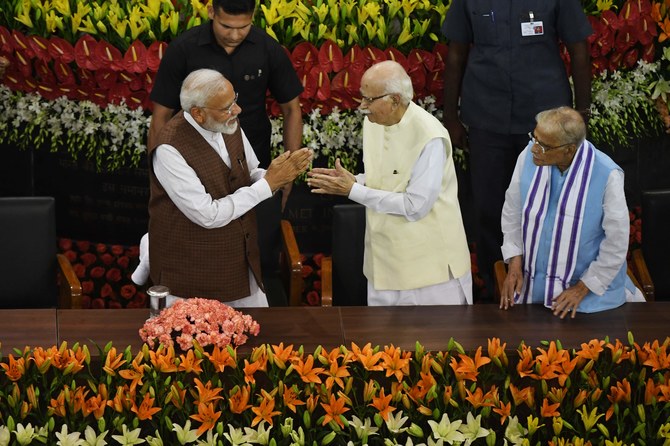
- Most analysts say little reason for PM Khan to believe Modi resuming office would create an opening for dialogue between the arch-enemies
- Khan and Modi may surprise many by establishing greater stability in the region, some experts hope
Pakistan doubles down on completing Iran gas pipeline despite threat of sanctions
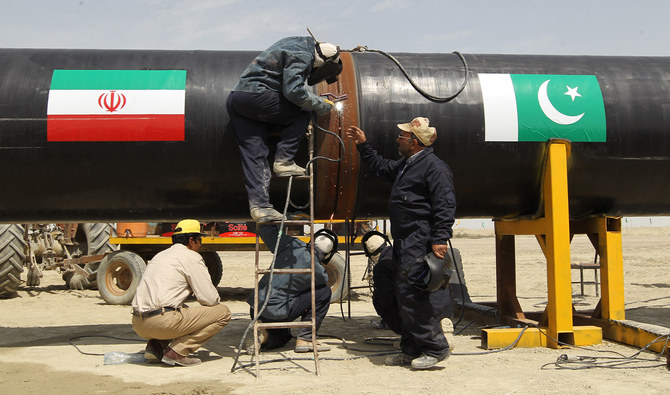
- Major gas pipeline deal has faced delays due to geopolitical issues and international sanctions
- On Wednesday, US warned that countries doing business with Iran faced the “potential risk of sanctions”
ISLAMABAD: Defense Minister Khawaja Asif said on Thursday Pakistan would find a way to complete a major gas pipeline deal with Iran which has faced delays for years due to geopolitical issues and international sanctions.
During a visit by Iranian President Ebrahim Raisi to Pakistan this week, the two nations reiterated the importance of cooperation in the energy domain, including trade in electricity, power transmission lines and the IP Gas Pipeline Project, a joint statement released following the culmination of the visit said.
“We will find a way to complete it,” Asif told reporters when asked if Pakistani officials had discussed the stalled pipeline with Raisi.
In March, Islamabad said it would seek a US sanctions waiver for the pipeline. However, later that week, the US said publicly it did not support the project and cautioned about the risk of sanctions in doing business with Tehran.
On Wednesday, the United States once again warned that countries doing business with Iran faced the “potential risk of sanctions.”
“Just let me say broadly, we advise anyone considering business deals with Iran to be aware of the potential risk of sanctions,” a State Department spokesperson said when asked about the Iranian president’s Pakistan visit and agreements signed. “But ultimately, the government of Pakistan can speak to their own foreign policy pursuits.”
The pipeline deal, signed in 2010, envisaged the supply of 750 million to a billion cubic feet per day of natural gas for 25 years from Iran’s South Pars gas field to Pakistan to meet Pakistan’s rising energy needs. The pipeline was to stretch over 1,900 kilometers (1,180 miles) — 1,150 km within Iran and 781 km within Pakistan.
Tehran says it has already invested $2 billion to construct the pipeline on its side of the border, making it ready to export. Pakistan, however, did not begin construction and shortly after the deal said the project was off the table for the time being, citing international sanctions on Iran as the reason.
Iran’s oil minister at the time responded by saying that Iran carried out its commitments and expects Pakistan to honor its own, adding that Pakistan needs to pick up the pace of work.
In 2014, Pakistan asked for a 10-year extension to build the pipeline, which expires in September this year. Iran can take Pakistan to international court and fine the country. Local media reported that Pakistan can be fined up to $18 billion for not holding up its half of the agreement.
Faced with a potential fine, Pakistan’s caretaker administration earlier this year gave the go ahead in principle to commence plans to build an 80 km segment of the pipeline. In March, Pakistan announced it would seek a sanctions’ waiver.
Washington’s support is crucial for Pakistan as the country looks to sign a new longer term bailout program with the International Monetary Fund (IMF) in coming weeks.
Pakistan, whose domestic and industrial users rely on natural gas for heating and energy needs, is in dire need for cheap gas with its own reserves dwindling fast and LNG deals making supplies expensive amidst already high inflation.
Iran has the world’s second-largest gas reserves after Russia, according to BP’s Statistical Review of World Energy, but sanctions by the West, political turmoil and construction delays have slowed its development as an exporter.
Originally, the deal also involved extending the pipeline to India, but Delhi later dropped out of the project.
With inputs from Reuters
Pakistan refiners, fuel station owners oppose price deregulation, fear business closures
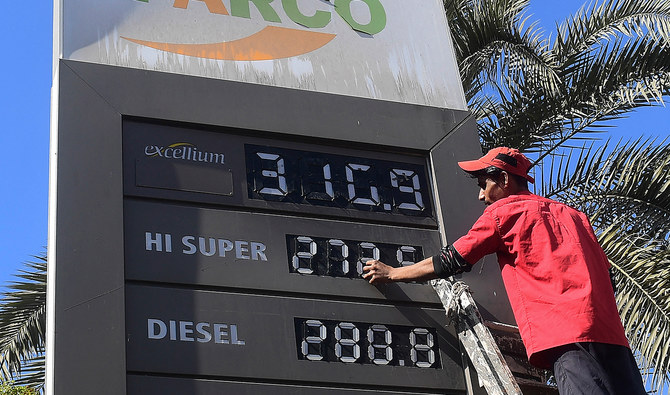
- Petroleum dealers say government wants to avoid public criticism and shift the burden of high oil prices to consumers
- Oil refineries also opposed deregulation earlier this week, saying it would put their $6 billion investment at risk
KARACHI: After Pakistan’s oil refineries, petroleum dealers announced their decision to oppose the deregulation of fuel prices in the country on Thursday, saying the move would adversely impact their businesses and lead to their closure.
The Oil and Gas Regulatory Authority (OGRA) of Pakistan briefed the energy ministry on the possible deregulation of petroleum products on April 17, prompting five of the country’s oil refineries to write a letter in which they described it as complex and critical issue.
The deregulation proposal would empower oil marketing companies to determine fuel prices on the basis of various market forces. Local consumers getting petrol and diesel from places closer to ports and refineries would get relatively cheaper products due to the transportation cost.
“The deregulation is the death warrant for the people and the petroleum industry in the country,” Abdul Sami Khan, Chairman of Pakistan Petroleum Association, said at a media briefing along with other dealers at the Karachi Press Club. “If this is imposed on us, we will be compelled to shut down our businesses.”
The dealers present at the briefing said the deregulation would cause an increase in the prices of petroleum products and make it difficult to maintain the quality of the fuel.
They said giving mandate to oil marketing companies to determine oil prices would be unwise and lead to different market rates.
“The government wants to shift the burden of price hike to people and get rid of the public criticism amid spiraling rates of petroleum products,” Khan added.
He said the smuggled Iranian oil had been openly sold in Pakistan, though it was not refined and damaged engines of vehicles.
He also asked the government to legalize it “in the larger public interest.”
“An agreement should be made to import crude oil from Iran to end smuggling,” Khan suggested. “The crude oil bought from Iran can be refined locally.”
Malik Khuda Buksh, senior leader and founding member of the association, said the deregulation would “create chaos in the market” since everyone would be quoting their own prices.
“Under the current mechanism, the government fixes the prices and no one can charge a single paisa more,” he explained while speaking to Arab News after the news briefing. “When the deregulation takes place, every oil marketing company will give its own price like vegetable and other product sellers, which will lead to further inflation.”
Like refiners, the petroleum dealers also warned that the deregulation of petroleum prices in Pakistan would negatively impact their business.
The letter jointly written by Attock Refinery Limited, Cnergyico PK Limited, National Refinery Limited, Pakistan Refinery Limited and Pak Arab Refinery Limited said the deregulation could jeopardize nearly $6 billion of investment.
The letter maintained it was better to spend money on upgrading the refineries since it would not only result in cleaner and environment-friendly fuels of Euro-V specifications but would also help save precious foreign exchange by substantially increasing local production.
Pakistan women’s great Bismah Maroof retires from international cricket
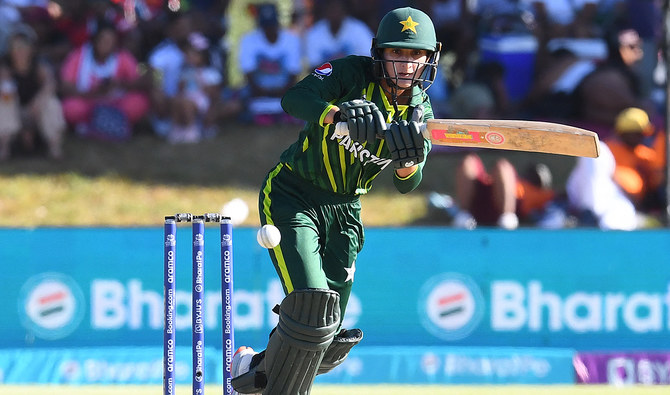
- Maroof, an allrounder, batted left-handed and scored 6,262 runs including 33 half-centuries
- Maroof captained Pakistan in 96 internationals, including at fourth World Cup in 2022
LAHORE: Former Pakistan women’s captain Bismah Maroof retired from international cricket on Thursday after 276 games in an 18-year career.
“I have decided to retire from the game I love the most,” the 32-year-old Maroof said in a statement on Thursday. “It has been an incredible journey, filled with challenges, victories, and unforgettable memories.”
Maroof, an allrounder, batted left-handed and scored 6,262 runs including 33 half-centuries — three ODI scores in the 90s — and bowled right arm leg break and bagged 80 wickets.
She was 15 when she debuted for Pakistan in 2006 in a one-day international against India, and three years later played her first Twenty20 against Ireland.
Maroof took a break in 2021 to give birth to her first child and said she was grateful for a parental policy that extended her career.
“The support from the PCB has been invaluable, particularly in implementing the first ever parental policy for me, which enabled me to represent my country at the highest level while being a mother,” Maroof said.
Maroof captained Pakistan in 96 internationals, including at her fourth Women’s World Cup in 2022 in New Zealand.
PM, president vow to end malaria, leading cause of illness and death in Pakistan
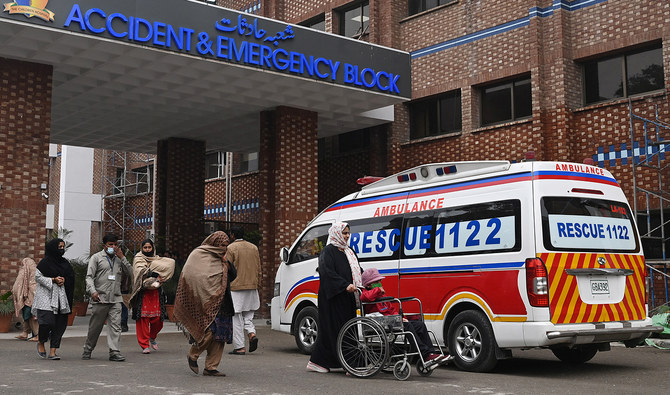
- Over 3.4 million suspected cases of malaria reported in Pakistan between Jan-Aug 2022
- Rapid upsurge observed in Balochistan and Sindh provinces after devastating floods in June 2022
ISLAMABAD: Pakistani top leaders on Thursday called on the government, international partners and organizations, health care professionals, and individuals to unite in their efforts to end malaria, one of the leading causes of illness and death in Pakistan according to the World Health Organization.
The Pakistani prime minister and president sent out the message on World Malaria Day, commemorated on April 25 each year to highlight the need for continued investment and sustained political commitment for malaria prevention and control. The day was instituted by WHO Member States during the World Health Assembly of 2007.
According to WHO data, from January through August 2022, more than 3.4 million suspected cases of malaria were reported in Pakistan compared with the 2.6 million suspected cases reported in 2021. Over 170 000 cases were laboratory confirmed.
A rapid upsurge in cases was observed in Balochistan and Sindh provinces after devastating floods in mid-June 2022, together accounting for 78 percent of all confirmed cases. The risk was assessed by the WHO as very high considering the effect of the flood crisis on the capacity of the national health system.
“In his message on the occasion of World Malaria Day, PM emphasized collaborative efforts to strengthen health care systems, increase access to quality diagnosis and treatment, and raise awareness about the importance of prevention and control measures of malaria,” state-run Radio Pakistan said, reporting on Prime Minister Shehbaz Sharif’s message.
The PM called on research and academic institutions “to flag scientific advances to both experts and the general public, international partners, companies and foundations to showcase their efforts and reflect on how to further scale up malaria control interventions.”
He said Pakistan had significantly enhanced free malaria testing and treatment facilities in malaria-endemic districts across the country through collaboration between the health ministry, national and international partners, provincial counterparts, NGOs and private stakeholders.
In a separate message, President Asif Ali Zardari emphasized collective efforts to curb malaria and expressed concerns over the rise in malaria cases due to the 2022 floods.
“Zardari called upon the provincial governments and other stakeholders to unite to deal with this alarming situation. He also called for raising awareness about the disease,” Radio Pakistan said.
Pakistan was hit by devastating floods in June 2022 which resulted in over 33 million people being affected, 81 districts being declared as calamity-hit and the national health infrastructure being badly impacted.
An upsurge in reported malaria cases was observed after the floods. In Sindh province, confirmed malaria cases in August 2022 reached 69,123 compared to 19,826 cases reported in August 2021. In Balochistan province, 41,368 confirmed cases were reported in August 2022 compared to 22,032 confirmed cases in August 2021. These two provinces together accounted for 78 percent of all reported confirmed cases in Pakistan in 2022.
Reports from 62 high-burden districts indicated that additional 210,715 cases were reported in September 2022, compared to 178,657 cases reported in the same districts in August 2022.
Pakistani PM seeks business community’s support to double exports in five years
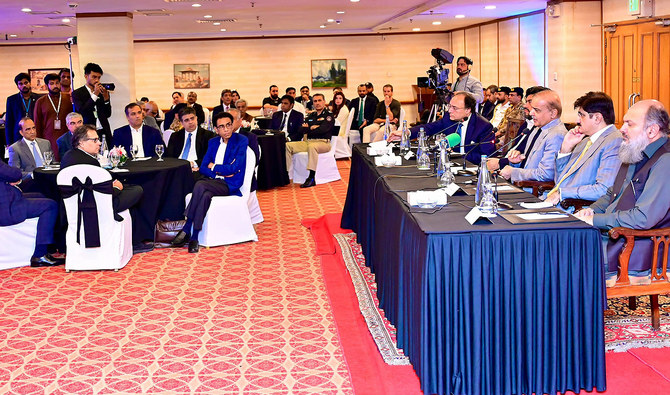
- Pakistan’s total exports during the current fiscal year, or July-March, stood at $22.93
- Pakistan wants to double exports through focus on textiles, agriculture, mining and IT
KARACHI: Prime Minister Shehbaz Sharif on Wednesday sought support from Pakistan’s business community to double export volume during the next five years of his government’s term.
Addressing business leaders in a ceremony held in the southern port city of Karachi, Sharif said the government, in consultation with the business community, would form a comprehensive policy framework to ensure export-led growth and resolve Pakistan’s foreign exchange reserve crisis.
Pakistan’s total exports during the current fiscal year, or July-March, stood at $22.93, which it wants to double through a focus on sectors like textiles, agriculture, mines and minerals and information technology.
“You are actually the backbone of the national economy as without your support, the government cannot bring the country out of economic crisis,” the prime minister told the business community, urging it to sit with his government to resolve issues and challenges.
“We should get together in the larger national interest. The brilliant minds should together find ways to overcome the challenges and problems hindering the country’s development and prosperity.”
Sharif’s meeting with the business leaders came as Pakistan is seeking a new long-term and larger IMF loan, with finance minister Muhammad Aurangzeb saying Islamabad could secure a staff-level agreement on the fresh program by early July.
The global lending agency has confirmed its executive board meeting for April 29 to discuss the approval of $1.1 billion funding for the South Asian state, the second and last tranche of a $3 billion standby arrangement with the IMF, which it secured last summer to avert a sovereign default and which runs out this month.










